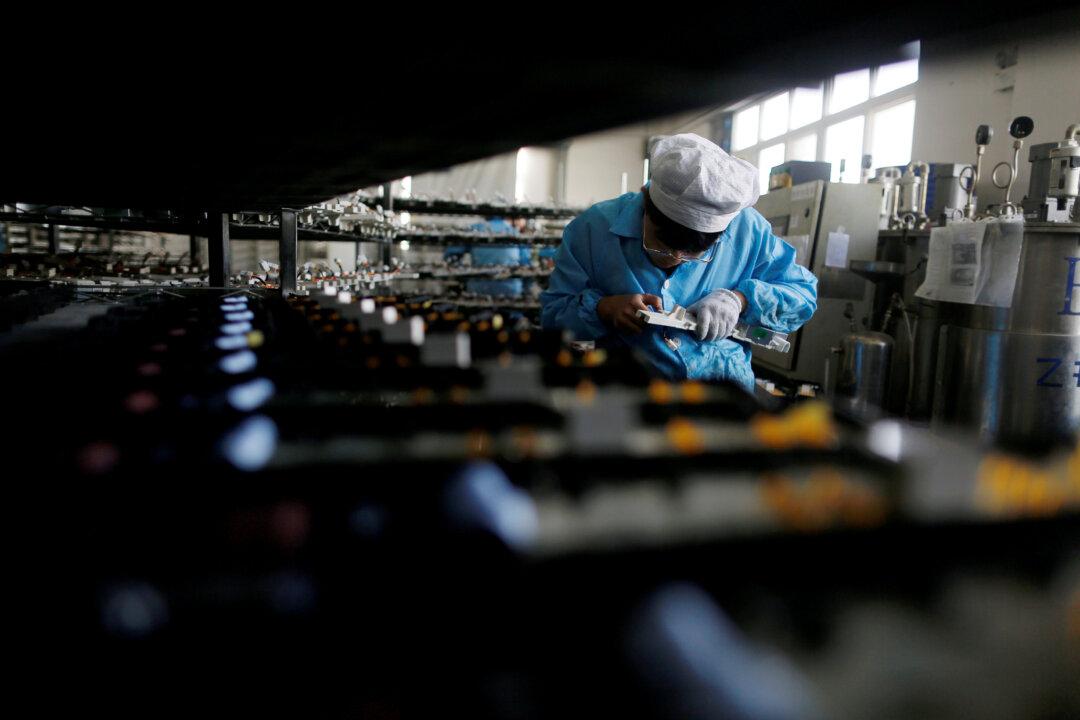BEIJING—China’s manufacturing sector likely resumed its slowdown in September after taking a pause in August, with exporters facing growing strains from trade disputes with the United States, a Reuters poll showed.
The official manufacturing Purchasing Managers’ Index (PMI) is expected to have slipped to 51.2 in September from 51.3 in August, according to the median forecast of 23 economists in a Reuters poll. The 50-mark divides expansion from contraction on a monthly basis.





